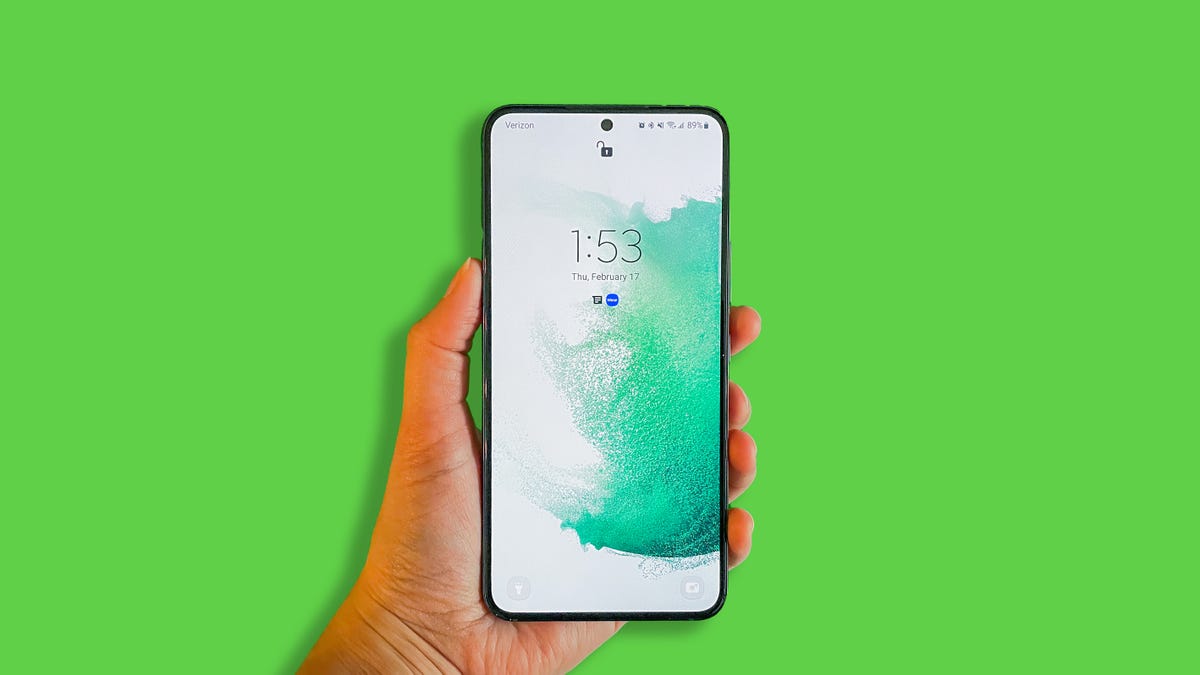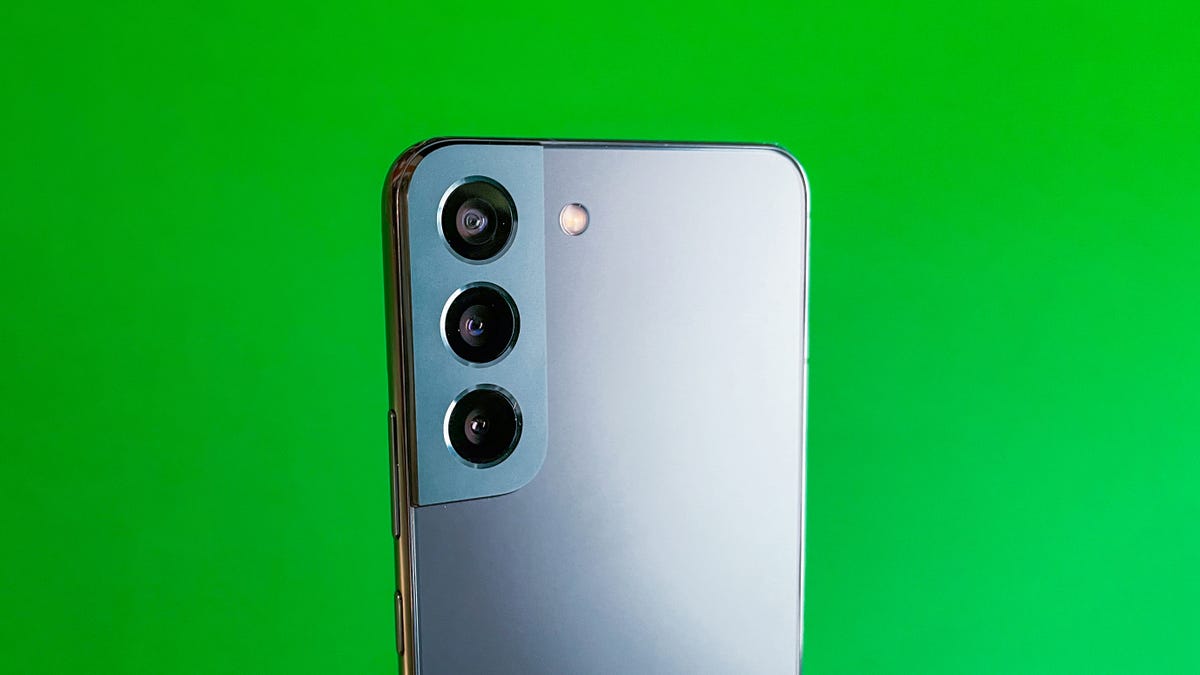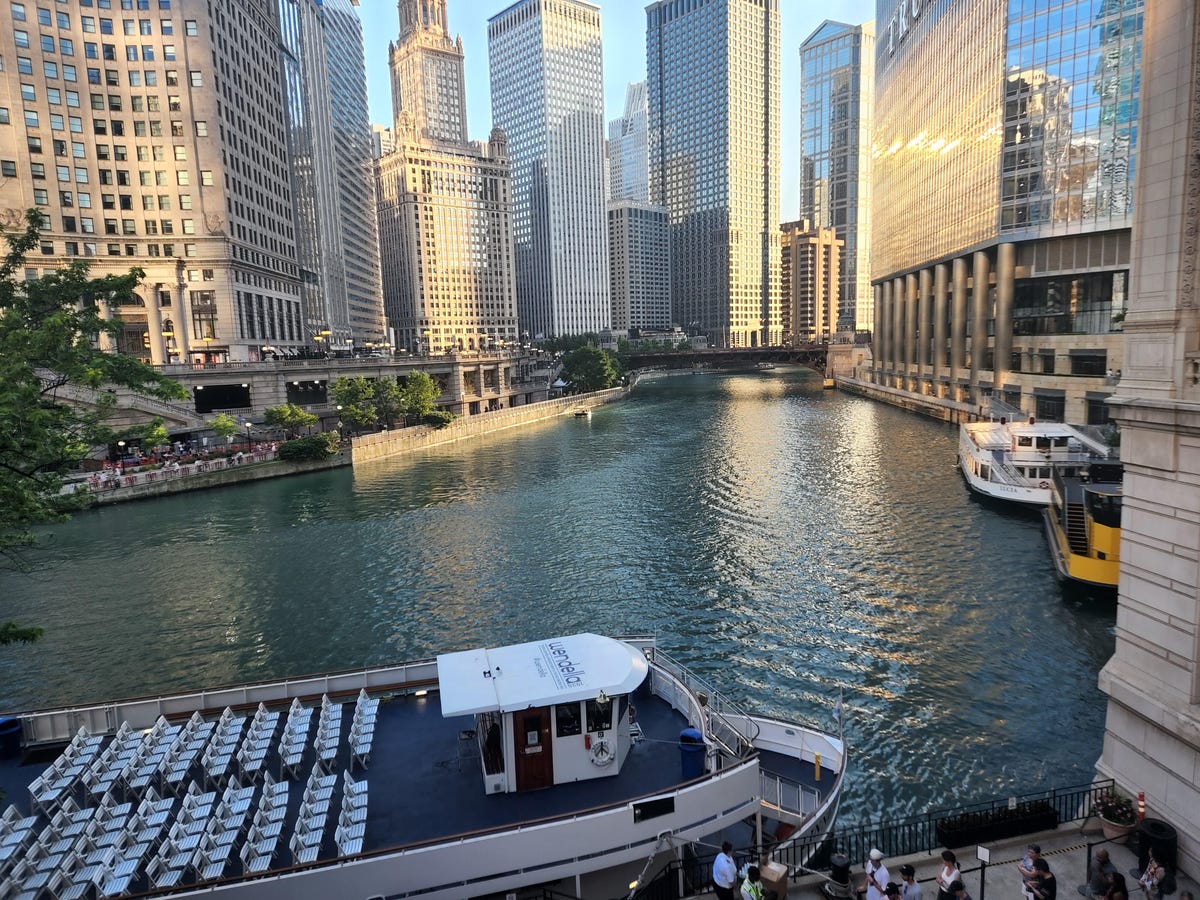The Galaxy S22 has just about everything I want in a phone. The design and build quality are eye-catching enough to make it feel worth its $800 price. The screen is luminous, and the camera takes photos with vibrant colors that feel more accurate than those taken on Samsung’s older phones.
There’s just one problem: the Galaxy S22 gives me battery anxiety. It delivers the all-day battery life Samsung claims to provide, but sometimes just barely.
I’ve been using the Galaxy S22 as my daily phone for the last month, and my opinion hasn’t changed much from my initial review in February. Four months later, the Galaxy S22 still feels like the right phone for people who prefer smaller devices and want a high-quality screen and camera. Just pack a charger if you anticipate having a long day.
Read more: How iOS 16 and Android 13 Could Change the Future of Smartphones

Lisa Eadicicco/CNET
Battery anxiety
The best way to describe the Galaxy S22’s battery is that it gives me a level of uncertainty I’d rather not have. It manages to last all day in most cases, but there are moments when I’m not sure if it’ll make it.
The battery performed the best when I didn’t commute to the office and had the refresh rate set to standard with the always-on display turned off. I had roughly between 60% and just over 70% of my battery left by about 9 p.m. during those days. But on longer and busier days spent in the office, the battery can dip down to the 30s or 40s by around 9 p.m. with those same settings.
Increasing the screen’s refresh rate and activating always-on display mode — features that make the Galaxy S22 feel faster and more convenient — drains the battery faster. I had 28% left by 9:43 p.m. on Father’s Day, when I spent the afternoon and early evening at my family’s house with my phone mostly tucked away in my pocket aside from taking a few photos.
The Galaxy S22’s battery life is long enough for an average day. But I want the assurance of knowing I won’t be stranded without the ability to call an Uber or find directions home after a late night out. I even borrowed a colleague’s USB-C cable to power up my Galaxy S22 during a recent all-day work event when I forgot to pack my own charger. (The battery percentage had dropped to the 60s by the afternoon and I still had a long night ahead of me.)
Luckily, the Galaxy S22 charges pretty quickly so I’m typically able to replenish a decent amount of juice in around 20 minutes. The Galaxy S22 supports 25-watt fast charging, but the compatible power adapter is sold separately. You can also see which apps are hogging your battery’s resources in the settings menu, which could be helpful if you want to optimize its longevity.
Read more: Best Android Phones to Buy in 2022

Samsung’s Galaxy S22 has a bright, vibrant screen.
Lisa Eadicicco/CNET
A bright screen and compact design
To be honest, I’m not sure how the Galaxy S22’s display brightness compares to that of its predecessor. What I do know, however, is that I never needed to turn the brightness above about a quarter of its maximum setting. That made it easy to see the display in direct sunlight and meant I didn’t have to worry about draining the battery even faster.
The Galaxy S22’s design was one of its most striking elements when I reviewed the phone four months ago, and that still holds true. The Galaxy S22’s vibrant green shade and matte brushed metal design make me want to flaunt this phone instead of hiding it with a case. It feels like a huge step up from the $700 Galaxy S21 FE, which is $100 cheaper.
But as I wrote back in February, what really sets this phone apart is its compact size. You don’t come across Android phones with 6.1-inch screens that often today, aside from the Sony Xperia 5 III and upcoming Google Pixel 6A. The Galaxy S22 may even be the tiniest phone in Samsung’s lineup across the Galaxy S and A series. It’s easy to squeeze into small pockets and operate with one hand, but those who watch a lot of video or read books on their phone might prefer the roomier S22 Plus or S22 Ultra.
Read more: Galaxy Watch 5 Rumors: Samsung Might Fix Our Battery Complaints

The Galaxy S22’s triple-lens camera.
Lisa Eadicicco/CNET
A quality camera with easier controls
The Galaxy S22’s triple-lens camera represents an upgrade over the S21’s, especially when it comes to low-light photos. But I also really enjoy the way the device’s 50-megapixel sensor takes photos in bright daylight conditions, too. I’ve historically felt like Samsung’s phones exaggerated color, resulting in images that were bold but didn’t always feel natural. The Galaxy S22 does a better job of striking that balance compared to older Samsung phones, in my opinion.
Take a look at some of the photos below to see the Galaxy S22’s camera in action.

The Galaxy S22 did a great job of isolating the subject in this photo.
Lisa Eadicicco/CNET

The Galaxy S22 seems to capture color accurately.
Lisa Eadicicco/CNET

Another example of how the Galaxy S22’s camera captures color.
Lisa Eadicicco/CNET

The Galaxy S22 is great at capturing sweeping landscape shots, too.
Lisa Eadicicco/CNET
Check out my full reviews of the Galaxy S22, S22 Plus and S22 Ultra for a deeper dive into how the Galaxy S22’s cameras compare to those on competing phones and other Samsung devices.
One of my favorite camera changes actually has nothing to do with the Galaxy S22 in particular. One UI 4, the latest version of Samsung’s mobile software, introduced new controls for switching between the phone’s lenses that makes it much easier to see the exact zoom level.
The old version of the camera app used tree-shaped icons to represent the degree of zoom. Now, Samsung has replaced those symbols with exact numbers, much like the iPhone. One UI 4 is available on the Galaxy S22 and Galaxy S21 and the company has said it’s coming to older phones like the S20 lineup, S10 series and Note 20 devices among other Galaxy phones.
Read more: Is Samsung’s 45-Watt Charger Worth It? We Put It to the Test
Overall thoughts
Revisiting the Galaxy S22 four months later has reinforced the impressions I developed when initially testing the phone back in February. The Galaxy S22’s attractive looks, bright screen and capable camera make it a solid all-around choice, especially for those who prefer smaller phones. But battery life remains a weak point. If you’re anything like me, you’ll want to keep a charger or battery pack handy during long days and tweak the phone’s settings to get the most out of it.
Samsung Galaxy S22 specs
| Display size, resolution | 6.1-inch Dynamic AMOLED 2x; 2,340×1,080 pixels; 120Hz |
|---|---|
| Pixel density | 425 pixels per inch |
| Dimensions (Millimeters) | 70.6 x 146 x 7.6 mm |
| Weight (Ounces, Grams) | 167 g (168 g for mmWave model) |
| Mobile software (at launch) | Android 12 |
| Camera | 50-megapixel (wide), 12-megapixel (ultrawide), 10-megapixel (telephoto) |
| Front-facing camera | 10-megapixel |
| Video capture | 8K |
| Processor | Qualcomm Snapdragon 8 gen 1 |
| RAM/Storage | 8GB RAM + 128GB 8GB RAM + 256GB |
| Expandable storage | None |
| Battery/Charger | 3,700 mAh |
| Fingerprint sensor | In-display |
| Connector | USB-C |
| Headphone jack | No |
| Special features | 5G (mmw/Sub6), 120Hz display, IP68 rating, 25W wired charging, Wireless PowerShare |




